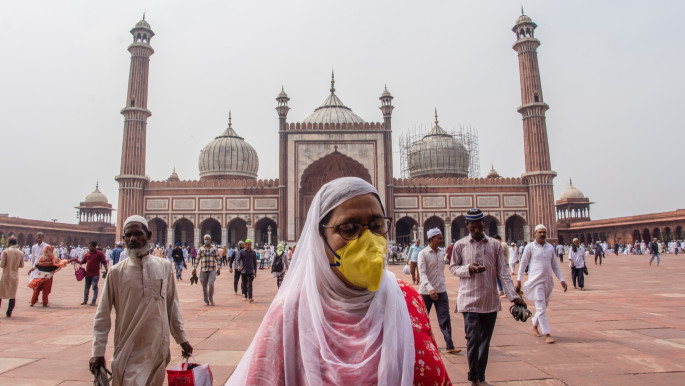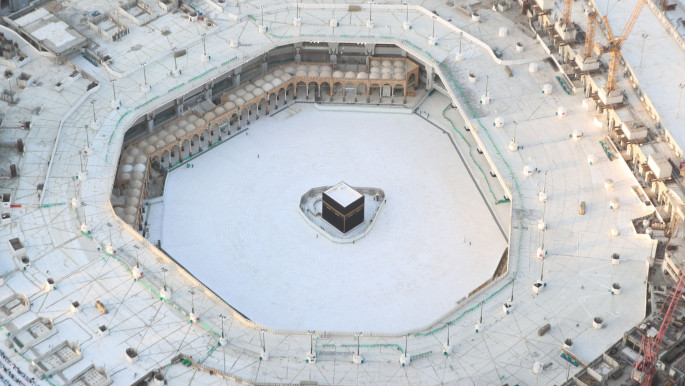Muslims in Asia brace for Ramadan in the shadow of coronavirus
But this year, millions of Muslims across the world are staring at a Ramadan like never before, disrupted by the fight against the Covid-19 pandemic.
With the battle against the novel coronavirus at a crossroads in many countries, Muslims are gradually resigning to the fact that their sacrifices are indispensable to global efforts to defeat the virus.
In the Asia-Pacific region, which makes up half of the world's Muslim population, most countries have restricted social gatherings and congregational prayers following warnings that crowded markets and mosques could trigger an outbreak of Covid-19.
Yet, enforcing such unprecedented controls during Ramadan is almost inconceivable for many countries, such as Pakistan, where clerics have declared that the sweeping restrictions should not contravene the tenets of religion.
 |
|
| Read more: Together Against Coronavirus: Shining a spotlight on frontline initiatives leading the charge against Covid-19 |
Ramadan, the ninth month in the Islamic calendar, is expected to start on 23 or 24 April, depending on the sighting of the moon.
Spirituality affected
Congregational worship and other religious activity involving groups of people are banned in most countries in the region. But one of the biggest challenges for some authorities will be dealing with the nightly prayer called Taraweeh – a favourite Ramadan ritual of Muslims.
Devotees gather in large numbers for the lengthy form of prayer, and in several South Asian countries every available space such as basements, parking lots and footpaths are turned into makeshift places of worship during the month.
In Pakistan, where people are deeply conservative and devout, authorities have made extraordinary concessions due to pressure from hard-line clerics.
The government led by Prime Minister Imran Khan has allowed congregational prayers including Taraweeh to happen in mosques, albeit with some preventive measures, despite experts warning that the step would lead to a widespread contagion.
In fairness to Khan, any other tough decision would have angered the country's deeply conservative society and attracted strong backlash. Even before the government decision, a group of 53 senior influential clerics had announced that they would not observe the restrictions imposed on mosques.
 |
Aside from the profound impact on people's spirituality and culture, coronavirus restrictions will also have severe financial consequences |  |
Pakistan already had a law restricting gatherings in mosques to five people or less but that was openly flouted by the people. In many places police who tried to enforce the law were attacked by mobs.
The clerics have agreed to stick to measures to combat the virus such as removing carpets, disinfecting floors, providing hand sanitisers and advising the elderly and unwell to pray at home.
But experts are not convinced and they fear allowing people to gather in mosques would blight all the progress made so far in tackling the coronavirus.
They point out more than 60 percent of the positive cases in Pakistan are linked to religious events such as pilgrimages in Iran and congregations of Tablighi Jamaat, an Islamic missionary group.
The situation is not different in Bangladesh, Pakistan's immediate neighbour and a country of 168 million Muslims.
 |
|
| Read more: India's coronavirus outbreak unmasks the ugly face of Islamophobia |
The country already has a nationwide lockdown in place and Prime Minister Sheikh Hasina has called on believers to pray at home during Ramadan. But a group of clerics has defied the order and called on Muslims to turn out for daily prayers.
Last month, at least 25,000 people attended a gathering in the southern city of Raipur to chant healing verses from the Quran in order to implore God to save the country from the pandemic, in a clear manifestation of the reality that religion takes precedence over fears of the virus.
And earlier this month, tens of thousands of people again defied the nationwide lockdown to attend the funeral of a top Islamic preacher, exposing the authorities' inability to manage the quarantine.
The pandemic is also likely to disrupt charitable activities such as Zakat in Muslim countries, dealing a blow to the vast majority of poor people who heavily depend on such contributions from affluent people to celebrate Eid.
Disrupting cultural order
In the Asia-Pacific region, Ramadan is also the time when thousands of people make their journey to join their loved ones before Eid. But many of them will be marking this Ramadan in a dispiriting fashion, separated from their friends and families because of the strict lockdown in place.
 |
From attending nightly prayers to navigating bustling markets that never sleep, every action in Ramadan is marked by a sense of community |  |
The situation is particularly bleak in Indonesia, the Southeast Asian country with the largest Muslim population in the world.
Every year, millions of migrant workers in Jakarta and other major cities travel to their homes in remote areas to celebrate Ramadan.
President Joko Widodo, in a rather late decision announced on 21 April, has banned this year's event after coming under intense pressure.
He had initially refused to impose a total ban on the exodus instead urging migrant workers not to leave. But his appeal had little impact, as many Indonesians had already made their journey, anticipating a government ban.
His change of heart appears to have been prompted by dire warnings from medical experts who said if the exodus from Jakarta was allowed, it could infect at least one million people as the capital accounts for about half of Indonesia's current 7,000 cases.
 |
|
| Read more: Ramadan, fasting and Covid-19: Your medical questions answered |
His decision is set to impact the livelihoods of millions of migrant workers who are now stranded in the capital because they have been furloughed or laid off by their employers.
People in countries such as India, Pakistan and Bangladesh also travel to their hometowns from other cities and abroad before Eid. But these countries are unlikely to have an adverse impact due to strict travel ban in place there.
Impact on livelihoods
Aside from its profound impact on people's spirituality and culture, the coronavirus disease is set to take a toll on popular Ramadan markets in several countries, leaving people in a financial limbo ahead of Eid.
Many countries have banned such crowded markets, popularly known as Ramadan bazaars, where people spend sleepless nights enjoying street food and shopping items.
Malaysia and Singapore have banned their popular Ramadan bazaars, dealing a major blow to thousands of small and medium businesses.
With economic activity ground to a halt, many of the iconic streets in India and Pakistan will be deserted for the first time in centuries.
In Mumbai, India's financial capital, a couple of vendors are planning to seek the authorities' permission to open the city's famous Mohammed Ali Road street food bazaar even for a couple of hours.
The fact that in its 250-year history the street had never closed for business even in the times of deadly terror attacks shows how bleak Ramadan will be this year for Muslims of the city.
Shan. A. Zain is a journalist and writer based in New Delhi, covering foreign policy and international security issues in Asia and the Middle East.
Follow him on Twitter: @shaan_zain





 Follow the Middle East's top stories in English at The New Arab on Google News
Follow the Middle East's top stories in English at The New Arab on Google News


